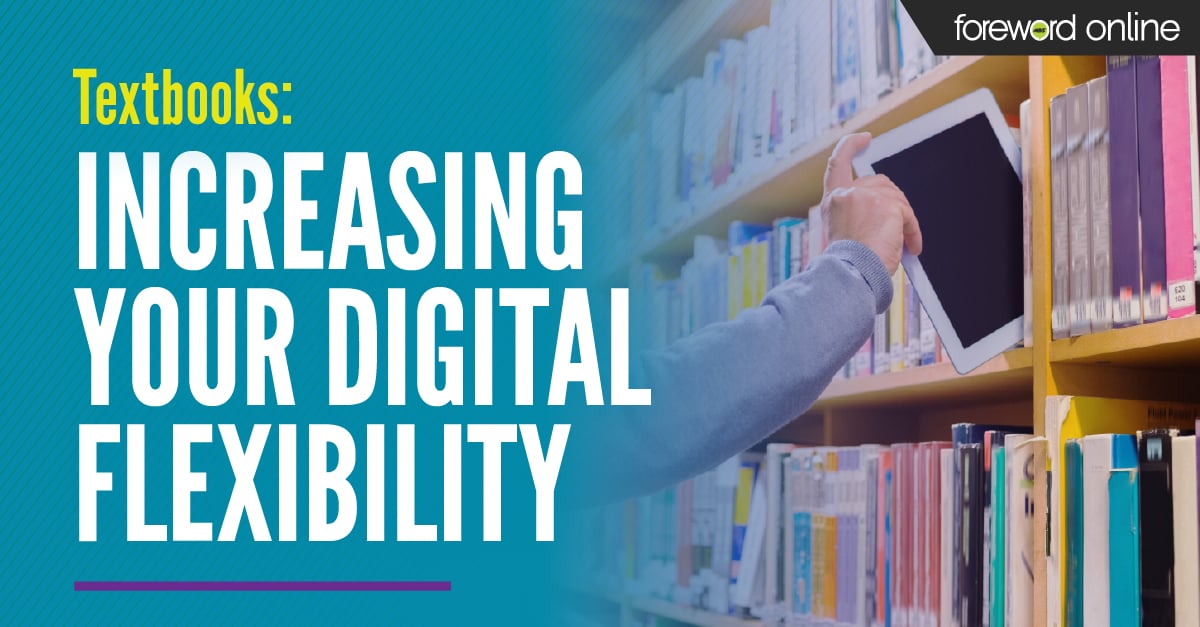The final day of the MBS 2019 Forums sessions started with a discussion about digital flexibility. Digital flexibility requires stores to look ahead and prepare for an ever-evolving textbook industry. Staying knowledgeable of industry changes keeps stores ahead of the game and capable of providing the best experience for customers.

MBS Customer Education Manager Wayne Jones spoke of how important it is to know how students take advantage of lower prices for digital titles.
“If you don’t provide students an option for digital titles, someone else will,” Mr. Jones said.
As digital innovation proceeds at a rapid pace, competition gets more fierce. MBS takes great strides to stay ahead of the game when it comes to industry changes, and the Forums event provides college stores with resources to better tackle these changes.
“Everything was organized nicely (lunches were terrific btw!) and there was time between sessions to speak with the staff, and of course, the other attendees. I networked with other schools and learned a lot more than I actually expected. The information I received from the Digital Flexibility session proved to be extremely valuable!” Steven Thorson, Bookstore Manager of El Camino College, said.
Digital vs. print
There are a lot of ways students can benefit from digital titles, but one of the most tangible is a lower price point. There are also more flexible duration options than physical titles. Where physical titles are usually rented for the span of a semester, digital titles can be rented for a lifetime, a year, half a year, 90 days, 60 days and even 30 days for some books. With a shorter duration, the students can save money on the title.
Nearly 81 percent of Americans have smartphones, and 74 percent have laptops or desktop computers, according to Pew research. A quarter of students purchase at least one digital version of a required textbook, Mr. Jones said.
“In the last academic year, about 63 percent of students bought new print titles, 56 percent bought used titles and 25 percent bought digital,” Mr. Jones said.
Choosing digital titles is becoming more commonplace, and it is a great benefit to campus bookstores. For the campus store, digital opens much-needed shelf space, and stores only pay for the digital items that are purchased. This model makes it so both parties, the store and the students, end up paying less for these titles.
There are still students who prefer physical titles. Print titles can be resold and they maintain value. For the campus bookstore, print titles are recyclable inventory through buyback, rental returns, used books and multi-term titles. While trends show the popularity of digital is growing, many students still prefer physical titles. A study at the University of Central Florida showed that many students believed they had a stronger understanding of topics with print titles. Less than half of the students felt they would learn equally from an e-textbook versus a physical book. This further illustrates that while digital is important to have available, print titles continue to be a driving force in the industry. This is also beneficial for the campus bookstore, as print titles are recyclable inventory through buyback, rental returns, used books and multi-term titles.
Digital content options with MBS
The MBS system has several integrations that help stores maintain critical digital flexibility. These ensure that your bookstore has the necessary provisions for selling digital titles and provide your students with a convenient and trusted source for all their textbook needs.
VitalSource Direct Integration:
- VitalSource database integrates directly with Arc
- Access to the complete current VitalSource catalog (including multiple rental duration options)
- Your MBS client representative assists with implementation
- Contains agency priced titles which are books with set prices defined by the publisher
- Includes titles with dynamic pricing meaning the store can modify prices manually or use a margin
RedShelf:
- RedShelf database integrates directly with Arc
- Access to the complete current RedShelf catalog (including multiple rental duration options)
- Your MBS client representative assists with implementation
- Contains agency priced titles which are books with set prices defined by the publisher
CEI:
- Campus eBookstore list is created by the store on the CEI website and then adoptions are manually added into Arc with the information given by CEI
- Multiple rental durations and price points provided by CEI
- MBS client representative assists with implementation
If you would like more information about MBS’ digital integrations, please contact your MBS representative.


